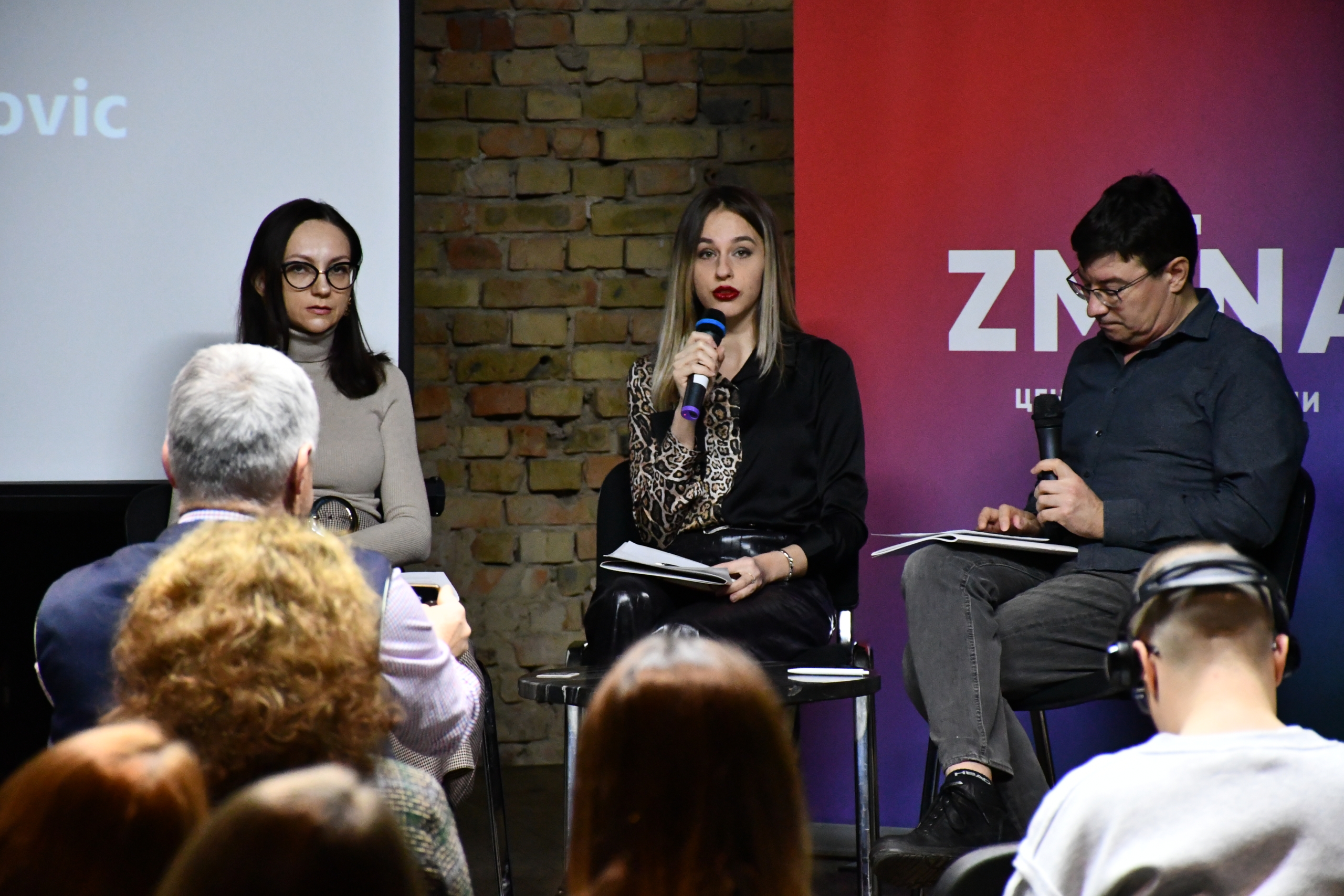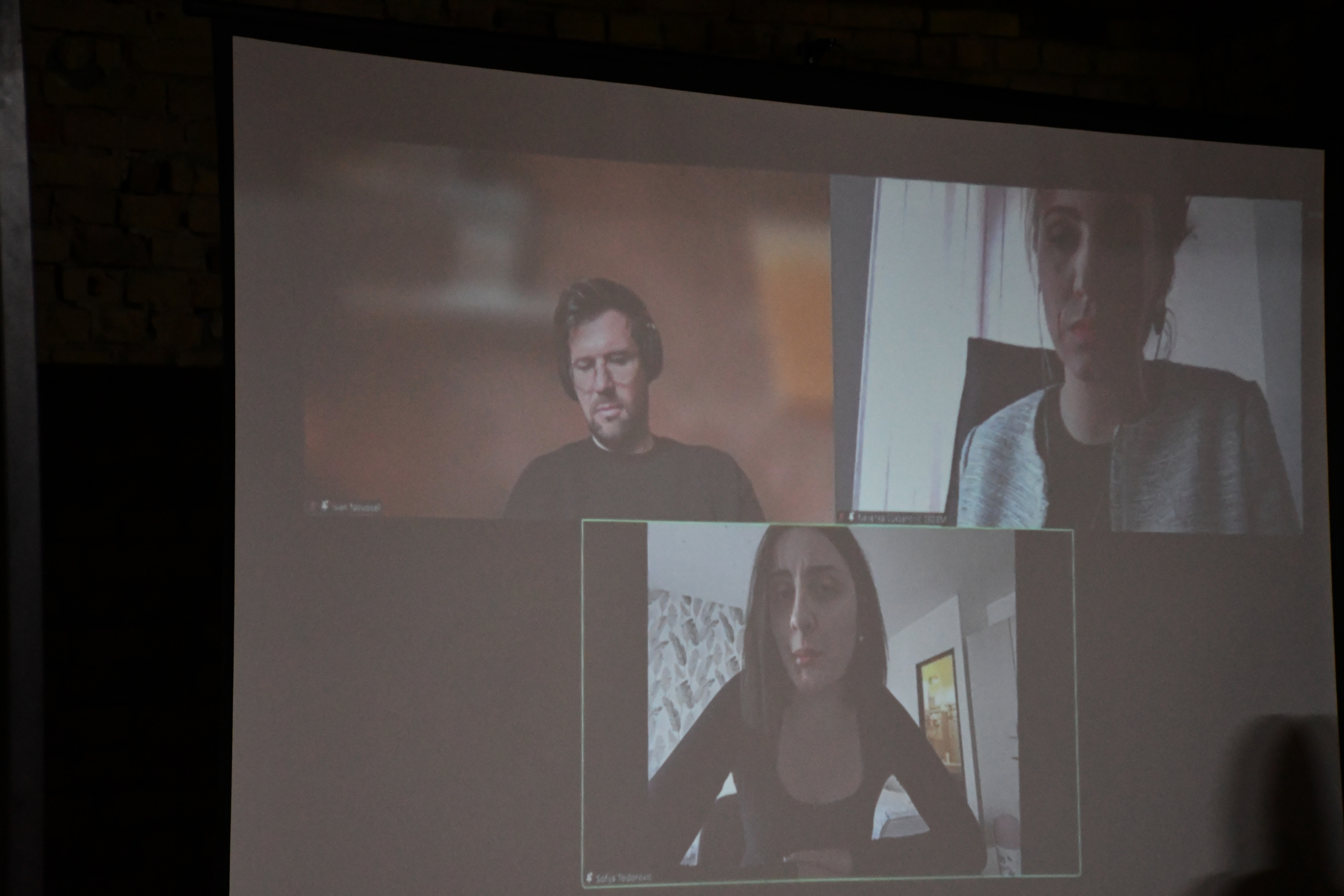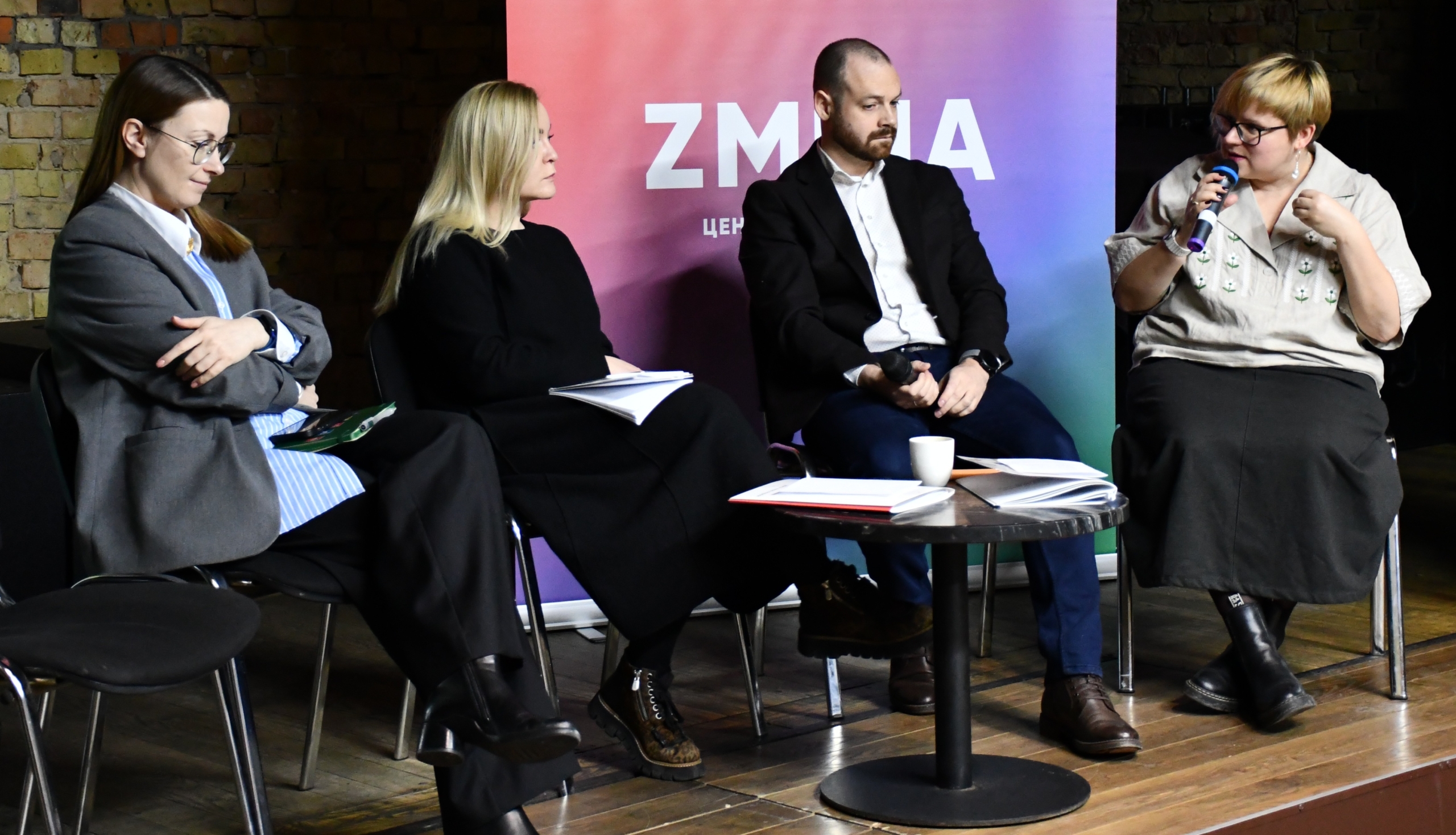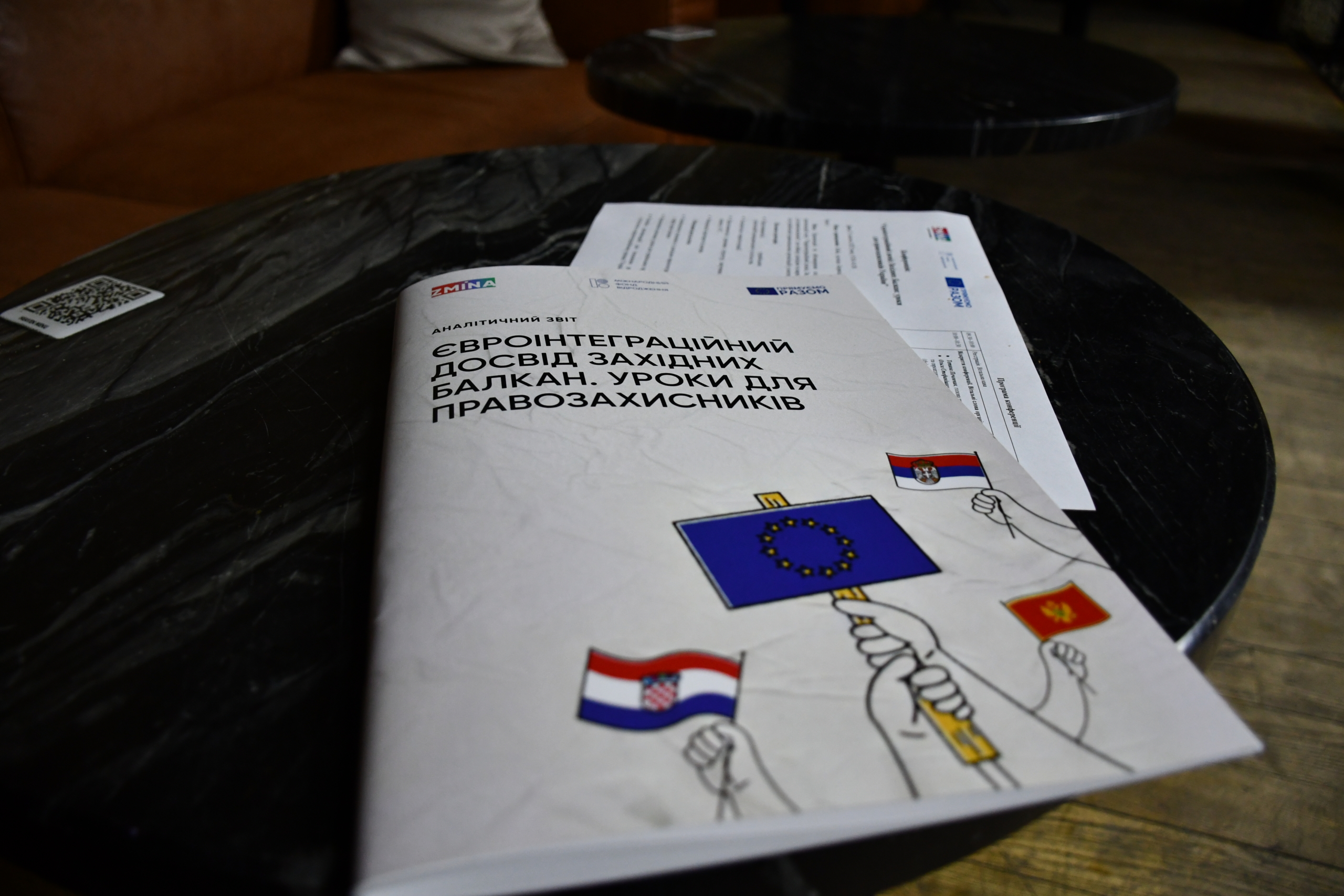On February 21, 2025, Kyiv hosted a conference “European Integration Experience of the Western Balkans: Lessons for Human Rights Defenders of Ukraine”, organized by the ZMINA Human Rights Center with the support of the European Union and the International Renaissance Foundation within the framework of the joint initiative “European Renaissance of Ukraine”.
Dmytro Shulga, Director of the Europe and the World Program of the International Renaissance Foundation and Tetyana Pechonchyk, Head of the ZMINA Human Rights Center
The analytical report “European Integration Experience of the Western Balkans. Lessons for Human Rights Defenders” was presented. The participants of the conference discussed the key findings of the document and exchanged experience with colleagues from Croatia, Serbia and Montenegro.
“This conference is not only about discussing the experience of our colleagues from the Western Balkans, but also about learning, adaptation and joint growth. We aim to identify concrete lessons that will help us in protecting human rights, strengthening democracy and ensuring the rule of law in Ukraine. Civil society plays a key role in this process, and we are grateful to our partners from Croatia, Serbia and Montenegro for their experience and expertise,” said Tatiana Pechonchyk, Head of the ZMINA Human Rights Center, opening the conference.
Presenting the report, Diana Deputat, an analyst at the ZMINA Human Rights Center, spoke about the experience of the Western Balkan countries on their way to the EU, including their achievements, challenges, and problems they faced along the way: “Our report analyzes the difficulties faced by Serbia, Croatia and Montenegro in the process of European integration and what conclusions from their experience can be useful for Ukraine. By studying this path, Ukrainian human rights defenders can develop effective strategies to protect human rights and adapt to European standards.”
 Liubov Akulenko, executive director of the Ukrainian Center for European Policy; Diana Deputat, analyst at the ZMINA Human Rights Center; Serhiy Sydorenko, co-founder and editor-in-chief of the European Pravda
Liubov Akulenko, executive director of the Ukrainian Center for European Policy; Diana Deputat, analyst at the ZMINA Human Rights Center; Serhiy Sydorenko, co-founder and editor-in-chief of the European Pravda
Ivan Novosel, Program Director of the Human Rights House in Zagreb (Croatia), Sofia Todorovic, Director of the Youth Initiative for Human Rights (Serbia), and Nevenka Vuksanovic, Program Manager of the Center for Democracy and Human Rights (Montenegro), spoke about how the experience of integration of Croatia, Serbia and Montenegro can help Ukraine on its way to the EU.
Mr. Novosel drew attention to the fact that reforms related to the rule of law and human rights started too late in Croatia: “Chapter 23 (on justice and fundamental rights) was opened almost at the end of the negotiation process, and this led to the fact that many reforms remained unfinished. Today, Croatia is facing problems related to the independence of institutions, the workload of the courts and other human rights challenges.”
Sofia Todorović noted that Serbia’s path to the EU was largely determined by the fulfillment of the requirements of the International Criminal Tribunal for the former Yugoslavia: “Serbia was forced to fulfill the requests of the war crimes tribunal, and this was what influenced its integration process. At the same time, good neighborly relations remain a key challenge. For example, Romania blocked Serbia’s candidate status for some time because of the issue of the Romanian minority.” She also emphasized the importance of the political aspect of European integration.
Speaking about the experience of Montenegro, Nevenka Vuksanovic noted that despite the fact that the country has long been considered a leader in the Western Balkans in the process of moving towards the EU, it has experienced years of stagnation: “We have adopted a lot of legislative reforms, but the political will has remained low. For example, we have strengthened the independence of the judiciary, but the courts are still politicized. Media freedom has increased, but journalists still face threats.” She warned Ukraine against formally fulfilling EU requirements without real changes

The experience of Croatia, Serbia, and Montenegro shows that in order to successfully integrate into the EU, Ukraine needs to start critical reforms as early as possible, ensure their actual implementation, not just the adoption of legislative changes, and form strong civil society coalitions to monitor the process.
Svitlana Matvienko, Executive Director of the Agency for Legislative Initiatives, Yevhen Krapyvin, expert at the Center for Political and Legal Reforms, and Iryna Fedorovych, Director of the Social Action Center, discussed the role of civil society in the process of Ukraine’s European integration.
The participants discussed both the opportunities that Ukraine may have this year in the process of joining the EU and the challenges associated with the uncertainty of reforms and political changes. In particular, they discussed the “window of opportunity” for strengthening civic control and influence on decision-making, while emphasizing the risks of losing the pace of reforms in case of instability.

As a reminder, in October 2024, a coalition of civil society organizations, including the Agency for Legislative Initiatives, Transparency International Ukraine, ZMINA, Lawyer of the Future, and the Ukrainian Bar Association, presented in Kyiv the Shadow Report to Chapter 23 “Justice and Fundamental Rights” of the European Commission’s Report on Ukraine in 2023. In this document, experts provided 350 recommendations for human rights reforms, some of which were prepared by ZMINA. This event was another important step in building a democratic society and the European future of Ukraine.

Source: ZMINA

